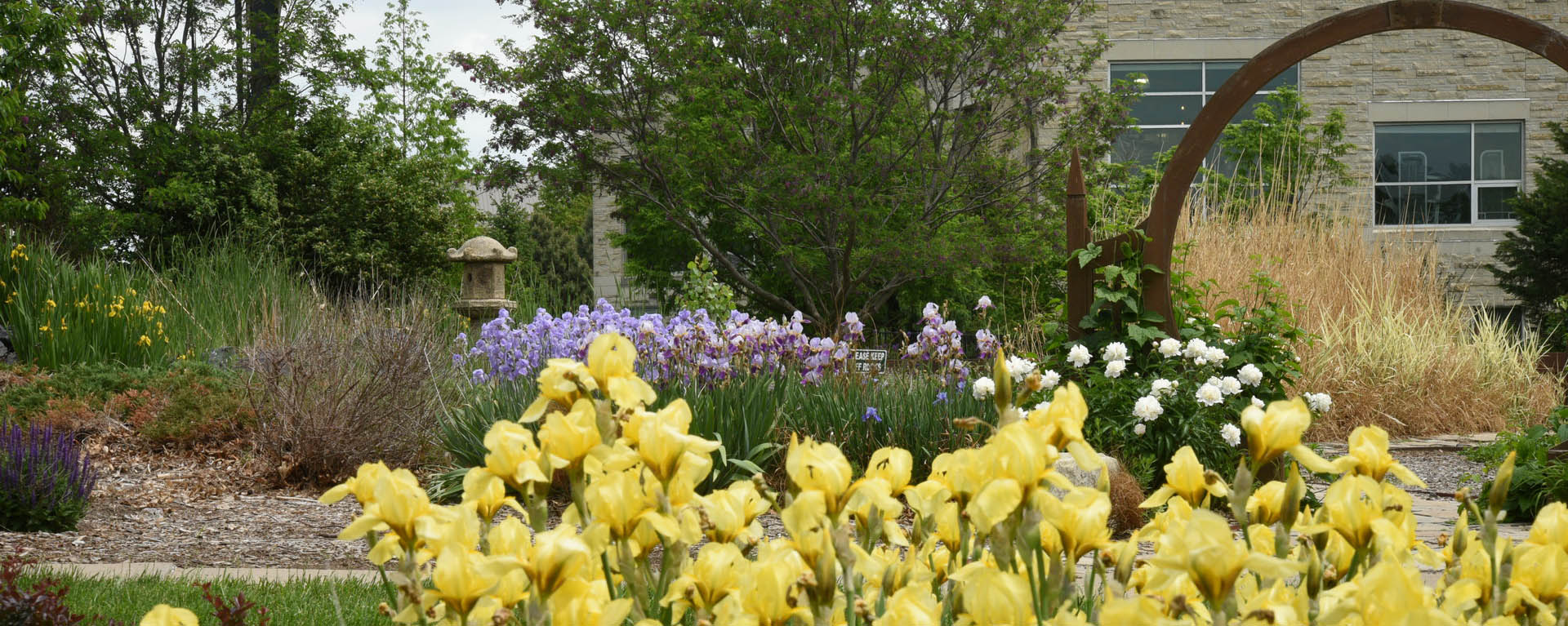
Washburn Turtle Team is Focused on the Conservation of Imperiled Turtles; the Public is Invited to Get Involved
Topeka, Kan. – Washburn University’s “Turtle Team” has marked a momentous milestone at the start of its turtle tracking season - locating its 500th ornate box turtle (Terrapene ornata and Terrapene triunguis). The team is part of a research program founded by a professor dedicated to teaching biology through hands-on learning experiences.
As a young boy, Dr. Benjamin Reed, associate professor of biology and principal investigator of the Washburn Turtle Research Program, dreamed about studying box turtles and now his lifelong passion is a reality – one that he shares with college students and others. Since joining Washburn University’s faculty in 2018, Reed and his team, including Kelty, a golden retriever, have spent countless hours and miles of walking to locate and track these specific species of box turtles. Currently, the team is regularly monitoring nearly 100 turtles across three main sites (two in Kansas and one in Nebraska). Coincidentally, the ornate box turtle is the official reptile for both states.
“Every single new turtle we find is exciting to me. For the 500th specifically, it helped put in perspective just how far the Washburn Turtle Team has come and how great a research team I have. I am so lucky to get great new students every year, have amazing students return year after year and have alumni continue to participate. In fact, this milestone turtle was found by Sam Wagner, a 2020 graduate, who continues to be an integral part of the team. Five hundred turtles may sound like a lot; however, we have worked three to seven days a week between April and October for seven years straight. Finding turtles is not as easy as it might seem,” said Reed.
Reed started tracking turtles using radio telemetry 13 years ago in Nebraska as part of his dissertation to earn his doctoral degree in philosophy from the University of Nebraska-Lincoln. When he moved to Kansas to teach at Washburn, Reed had to do extensive work to get the program started. “I had to get state research permits, Institutional Animal Care and Use Committee (IACUC) approvals, locate potential research sites, contact landowners for permission, confirm turtles were at those sites, obtain research funding and recruit students to work with me among other things,” stated Reed. Today, research students are from Washburn, Baker University, Coe College and the University of Nebraska-Lincoln.
One student who has excelled as a result of being a member of the research team is Washburn junior Brookelynn Powell from Spring Hill, Kan. Majoring in biology, Powell has spent the past two years conducting studies - cobrumation and cohabitation (Fall 2023 - Topeka, Kan.), reproductive ecology (Summer 2024 - Ogallala, Neb.) and supplemental feeding (Summer 2025 – Topeka, Kan.). “I spent last summer at Cedar Point Biological Station completing ultrasounds on 24 turtles for eight and a half weeks. I am an author on a paper about this study which is under review and in the process of being published,” said Powell.
Planning to pursue a doctoral degree in veterinary medicine, Powell credits her years on the research team for being prepared for her continuing education. “With research being a requirement for admission to veterinary school, as an undergraduate, I’ve completed numerous hours of animal handling, use of an ultrasound machine along with opportunities for conference presentations, teamwork and community outreach. Overall, this experience has strengthened my resume and graduate school application tenfold,” stated Powell.
Both Reed and Powell believe that there is a place for anyone with an interest to learn more about and support the conservation of ornate box turtles. “The public can donate to the Adopt-A-Turtle Program, participate in the research program, volunteer to help with husbandry activities (cleaning equipment), request a presentation for your school or special interest group and/or be a good turtle steward and inform others how to be good turtle stewards,” said Reed.
For students interested in majoring in biology which requires research credit, Powell encourages observing what the program is about before making a commitment. “I believe that being willing to go out for a morning and see what we do in the field would be a wonderful way to think about getting involved. For me, seeing other students having fun and getting to see how things work before deciding was the best way for me to gauge how I would feel doing this kind of research for a longer period. I would also encourage students to chat with Dr. Reed, as he is good at engaging with the students and helping them to figure out what kind of part they would want to play within the research team. He will find a task for anybody,” shared Powell.
Being a dreamer, Reed is hopeful for a bright future full of growth for the program. “The program is only limited by time and funding. So, additional funding will allow us to continue to push our research forward and expand the skills students can develop utilizing new equipment and technology,” said Reed.
To learn more about the Washburn Turtle Research Program, visit https://wu-turtle.weebly.com/ and follow their efforts on Instagram at @midwestboxturtles.
- 30 -
For further information, contact:Joy Bailes
Director of Internal Communications and Brand Management
Telephone: (785) 670-2153
Cell: (785) 230-1648
Email: joy.bailes@washburn.edu

